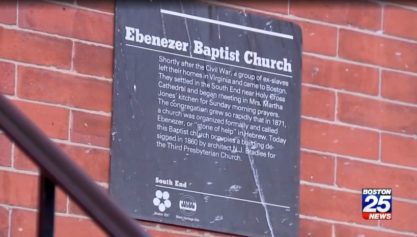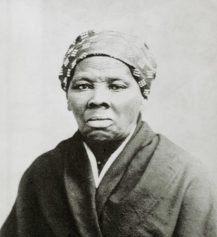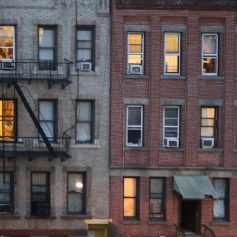The historic Anacostia neighborhood of Southeast Washington, D.C., has a lot of stories to tell. Within this predominantly Black community lying east of the Anacostia River, there are foundational stories of how the region was originally inhabited and named by the Nacotchtank natives who once nurtured their families from the life-sustaining waters of the nearby river. There are fascinating 19th-century anecdotes about the area’s most famous citizen, Frederick Douglass, the acclaimed “Sage of Anacostia.” There are compelling 20th-century accounts of area families serving the war effort at nearby military and manufacturing sites, of subsequent white flight, racial violence and civil rights, of hardworking African-Americans making ends meet. And there are tragic tales of how, by the turn of the 21st century, the name “Anacostia” had merged with its infamous yet distorted reputation for drugs and violence to symbolize that dangerous place “cross the river” you dare not go.
Fortunately, the stories of this historic and reemerging neighborhood are still being written. Unfortunately, for the past two decades there have been no bookstores in the Anacostia community to help convey them.
That is, until now. MahoganyBooks is challenging this historic neighborhood to write a new chapter in community education and service by setting up shop in the four-year-old Anacostia Arts Center at 1231 Good Hope Road. Consistent with the faces of the surrounding community, Mahogany specializes in books written for, by or about people of the African diaspora.
“In D.C., there’s a bunch of gentrification going on, as we know, but Southeast is still heavily populated with Black people,” said Ramunda Young, who co-owns the company with husband Derrick. For us to be in that space, said Young, it “was critical for our community to have access to quality new books that reflect who we are as a people. And that location really speaks to that” especially given “there are other Black businesses in the arts center and in the surrounding community. So we are right at home within these demographics.”
While the African-American population in the traditionally majority-Black city of Washington has recently fallen slightly below 50 percent, it has remained above the 90 percent mark in its Anacostia neighborhood. And of the 469,000 city residents age 16 and older, approximately 36 percent function at the lowest level of literacy, with the majority of those concentrated east of the Anacostia River.
“When you look at what illiteracy means for our community, and how the rate of young people being incarcerated is based off the level of their reading, we want to help stop that increase,” stressed Young, noting one effective way is to offer a representative and “accessible bookstore in the community.”
“It is important for MahoganyBooks to be in Anacostia because we need to have places where entrepreneurs look like the community, where they see that positive reflection, and where they feel like they are a part of something greater than themselves,” echoed husband Derrick, confirming, “that’s why it’s important for us to have this business, and that’s why we are here.”
Although Mahogany is taking up new space in the 9300 square-foot arts center — the first bookstore to serve the Anacostia neighborhood since Pyramid Books closed in the mid-1990s — the company is far from new. For the past decade Mahogany has successfully sold books online and will continue to do so along with in-person sales at its new location. The company has also serviced numerous book events and book clubs in the Washington metro area.
“Derrick and Ramunda are making a significant contribution to the community, not just locally but nationally,” said colleague Troy Johnson, owner of aalbc.com (African American Literature Book Club), the oldest, largest and most frequently visited website for books by or about people of African descent. “The institution they have built will celebrate and promote the contributions of Black writers, both online and off, for generations to come. With their ongoing dedication to, and support from, our community, I hope their work will provide a model for others across the country to follow.”
Johnson’s optimism is wholly relevant given his organization’s ongoing tracking of Black-owned bookstores around the nation. At last count, there were 55, and many, noted Johnson, “are struggling for survival.” Accordingly, the challenging issue of sustainability was a key consideration in determining Mahogany’s current location and business model. The partnership with the arts center in a space housing other active businesses enables the company to offer ongoing literary and cultural events within a popular community hub while simultaneously streaming them to a virtual community. Mahogany will also benefit from traffic from the Latinx community in the Washington area as it hosts Duende District within its space, a pop-up bookstore with a similar mission.
“My husband and I have both worked at Black-owned bookstores in the past and we’ve seen what it has meant to our community,” said Young. “It’s one thing to have a space to just go purchase a book, but it’s another to be a haven and a place for authentic dialogue to take place, and that’s what we want MahoganyBooks to be.” While offering these types of community conversations and experiences, continued Young, “We also want to encourage our young people by creating and curating that love of reading at a very young age.”
Young is speaking from experience. The couple’s 12-year-old daughter, who has played an active role in helping out and learning from her parent’s decade-old enterprise, is a straight-A student her mother proudly describes as “a voracious reader” who “eats, sleeps and breathes books.”
Her name?
Mahogany.


